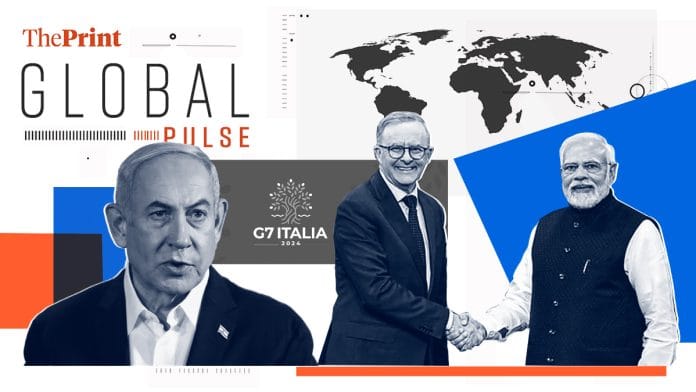New Delhi: The “long arm of the Indian state is reaching Australians”, reports ABC News, Australia, discussing India’s alleged intelligence operations on foreign soil and spread of Hindu nationalism among the Indian diaspora.
The Indian state is “silencing critics and threatening members of the diaspora” while the Australian government is embracing Modi and his administration as “an important partner”, the report — ‘Infiltrating Australia‘ — claims. Pointing out that Sikh activists are the target, the report adds, “This pattern of threats from Indian authorities has forced some Australians to take a step back from their political work, and many did not want to speak publicly because of fears for their own and their family’s safety.”
The report also claims that Australia’s intelligence chief Mike Burgess’s agency investigated a “nest of spies” and asked at least four intelligence officers from India to leave Australia. It adds that groups like Overseas Friends of the BJP have attempted to “infiltrate politics”, with Indian Australians now making up a “substantial proportion of the new members in about half of the branches” in the electorate of Liberal Party of Australia’s Alex Hawke.
Bloomberg report, ‘Modi seizes center stage at G-7 to ambush Biden, Trudeau’, discusses how Modi ended “his diplomatic purgatory with the US and Canada” at the G7 summit.
Italian Prime Minister Giorgia Meloni invited Modi to the summit despite India’s tensions with Canada over the killing of Hardeep Singh Nijjar and the US over an alleged assassination plot on the country’s soil. Modi’s invitation is “a sign of India’s role in the emerging economic race between the G7 and its rivals, particularly China”, says the report. “Modi was placed at center stage for the family photo,” it says, taking note of a brief talk Modi had with US President Joe Biden and Canadian PM Justin Trudeau, who has since “avoided” giving any details.
Nikkei Asia focuses on India’s “multi-alignment” with countries, taking the instance of the G7 summit, where Modi met with the leaders of different countries. “Modi’s global standing has not been tarnished by his electoral setback,” the report quotes observers as saying. However, India needs to keep up its tough “balancing act”, it adds.
The report points out that Modi met Ukrainian President Volodymyr Zelenskyy on the sidelines of the G7 summit and assured his commitment to encouraging a “peaceful resolution” of its war with Russia, and on the other hand, he sent Pavan Kapoor, a former envoy to Russia and a secretary at the External Affairs Ministry, to the Ukrainian peace summit in Switzerland in his place. Other BRICS nations who boycotted the peace conference “had been surprised by India’s apparent willingness to attend”, says the report.
India’s ‘Act East’ policy is poised for a recalibration, writes professor Syed Munir Khasru, chairman of international think tank IPAG Asia-Pacific, Australia, in a South China Morning Post opinion piece, discussing the history and probable post-poll trajectory of India’s ASEAN engagement.
‘Can Modi’s third term bring India and ASEAN closer together?‘ he asks in the headline, suggesting the Act East policy may be revised to protest India’s core interests in Southeast Asia while promoting its vision. “For smaller ASEAN states walking a tightrope between the Indian and Chinese spheres of influence, Modi’s third term holds both opportunities and challenges. An economically integrated, strategically engaged India provides a counterweight to Chinese dominance,” the piece says.
A survey by the Global Times Institute found that 90% of Chinese respondents want to learn more about India, with Mumbai and New Delhi among the top cities they want to visit.
According to the survey, 89% of Chinese respondents want to visit India for tourism and 30% for short-term business. Over half have consumed Indian media — 90% have watched Dangal and 3 Idiots. On the other hand, 48% of Indian respondents are interested in visiting China, mainly Beijing (51%) and Shanghai (49%), it adds.
Israel divided on Gaza aid & pilgrims’ death due to sunstroke
Israel is divided over a ‘daily pause’ in the war in Gaza for humanitarian aid delivery. Internal Security Minister Itamar Ben-Gvir and Finance Minister Bezalel Smotrich have opposed the decision, claiming humanitarian aid keeps Hamas in power, the BBC reports.
On the other hand, 19 international Hajj pilgrims have been reported dead due to high temperatures and heatwaves in the region. To know more, read the DW’s report.
(Edited by Madhurita Goswami)
Also read: Adani Group’s plans to diversify and how cricket in India is intertwined with politics






